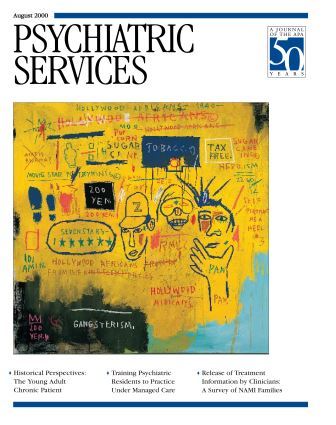Legal and Ethical Dimensions for Mental Health Professionals
As a forensic psychiatrist, I was looking forward to reviewing Legal and Ethical Dimensions for Mental Health Professionals, partly because of the publisher's claim that this book "is a complete guide to the law and ethics as they relate to clinical practice." The authors, a licensed psychologist and a school counselor, note in the preface that the book was written to help readers understand the legal and ethical obligations of mental health professionals. Unfortunately, this book is not a complete guide, and it achieves the authors' stated goal in only a very limited fashion.
The book is divided into six sections covering historical and helping perspectives; ethical and legal dimensions; multicultural context; relationships with special populations; considerations in schools, groups, marriages, and families; and considerations in training. Each section has one to three chapters that too frequently cover the subject matter in a superficial, incomplete, or misleading way. For example, ethical principles are initially described in a fairly global fashion in relation to mental health professionals. Periodically, the authors cite various aspects of codes of ethical conduct promulgated by leading national professional organizations, such as the American Psychological Association, the American Association for Marriage and Family Therapy, and the National Association of Social Workers, but the reader does not receive a particularly useful overview of these important codes.
Some of the information in the chapter entitled "In a Legal Context" (referring to the mental health professional) is misleading. For example, discussing principles related to privileged communication, the authors indicate that "privileged communication laws are abrogated, in all states, by an initial report of child abuse." It is true that information relevant to the reasons for making an initial report of child abuse are not privileged, although it is not universally true that information obtained after an initial report of child abuse is no longer privileged.
At the end of each section, the authors provide exercises that are intended to reinforce the reader's understanding of the principles outlined in each chapter. In general, these exercises are useful, but answers that would facilitate discussion about each exercise are not included.
I would not recommend this book to psychiatrists because of the limited discussion of ethical issues specific to the practice of psychiatry. I would also not recommend it to other mental health professionals who have completed their training because of the problems already summarized. Mental health professionals in training may find this book somewhat helpful in raising a variety of issues that they will need to further explore. However, I think other introductory forensic textbooks would serve them better.
Dr. Metzner is clinical professor of psychiatry at the University of Colorado Health Sciences Center in Denver.



